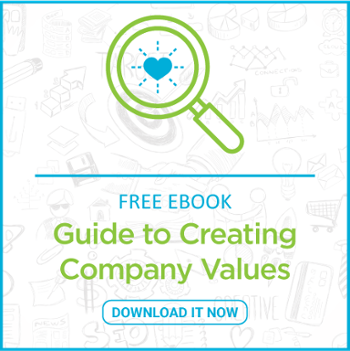
You’ve been searching high and low for a talented candidate, and finally found one. Your immediate step should be to hire them, right? Wrong! There are many factors to consider before jumping to the hiring stage. A few things to keep in mind are:
- Are they a culture fit?
- Will they add or detract from your team dynamics?
- Do their expectations of the role and yours align?
- Will there be growth opportunities for this candidate?
Each of these are important to consider before you make a hire.
Culture Fit
Culture fit does not mean hiring someone who looks, acts, or thinks like you. Instead, culture fit happens when a candidate’s personal core values align with a company’s core values.
 A Bamboo HR study showed that 91% of managers say culture fit is more important than experience and skills to them. That makes sense because there are some things you can change and other things you can’t in a person. You can teach a new employee the skills they need to succeed in their job and give them experience with new things. You can’t change who they inherently are, however.
A Bamboo HR study showed that 91% of managers say culture fit is more important than experience and skills to them. That makes sense because there are some things you can change and other things you can’t in a person. You can teach a new employee the skills they need to succeed in their job and give them experience with new things. You can’t change who they inherently are, however.
Imagine a company that embraces and drives change. Now, think of someone who prefers working methodically and may fight change. The fit on both sides would be all wrong! If you value embracing and driving change, you’ll need to hold out for that value in someone you hire. You need to consider that every hire you make either adds to or weakens your company culture.
Consider crafting questions to uncover if a candidate aligns with your core values. For example, when embracing and driving change, you could ask: “Describe a major change that occurred in your life or at work. How did you adapt to this change?” or “How do you know when it is time for a change? What criteria do you use?”
What you value as a company and who you hire should align with each other. If someone joins your company, they want to feel that they found their people, those sharing like thoughts and actions. This is where job harmony begins.
Team Dynamics
A positive team environment allows for collaboration and creativity. When a team rows in the same direction, positive momentum begins to happen. When everyone’s feedback is welcome on a team, people tend to feel safer sharing their thoughts and ideas, and out-of-the-box thinking and innovation take place.
Understanding how a candidate works in a team environment versus being an individual contributor is critical to maintaining a cohesive team. Many times, talented individuals have a bit of an ego and feel their ideas outshine others. This can lead to a breakdown of the team dynamic you’ve worked so hard to create. Uncovering how they work with others will lead to fewer conflicts down the road.
Role Expectations
That great candidate may seem like a perfect fit, but they may be overqualified or more talented than you need for the role you are hiring for. If they are, you may find they have unrealistic expectations, become bored quickly, or even frustrated that your company isn’t on par with their hopes.
Clearly outlining role expectations ensures both parties are on the same page. Providing clarity on what you can and can’t deliver helps a candidate better understand the goals for the role and what their specific responsibilities will be.
When a prospective new employee knows what is expected, they can focus on contributing to those efforts. Ask them what excites them about the role and what concerns they may have for it as well. Addressing potential challenges early on helps prevent misunderstandings and sets realistic expectations.
Growth Opportunities
Ensure you are clear on the potential for growth within your company. Highly talented people have expectations for advancement, sometimes at a rapid pace you may not be able to accommodate.
Ask a candidate where they see themselves in 3 or even 5 years. Is the ability to help them accomplish these goals achievable? Discussing how you will help them develop is important. But if there isn’t an opportunity for them, you should share that too. Someone loaded with talent expects to develop and grow in a company. If what you promise isn’t delivered, they may seek out greener pastures and leave.
Conclusion
Hiring is hard, and finding talented candidates is even harder. Remember to take your time to hire the right candidates, especially when they are extremely talented. Evaluating if they are a culture fit, play well into your team dynamics, have realistic role expectations, and are aligned with growth opportunities is essential for you to uncover. Doing so can lead to a more successful working relationship that benefits everyone involved.








Leave a Comment